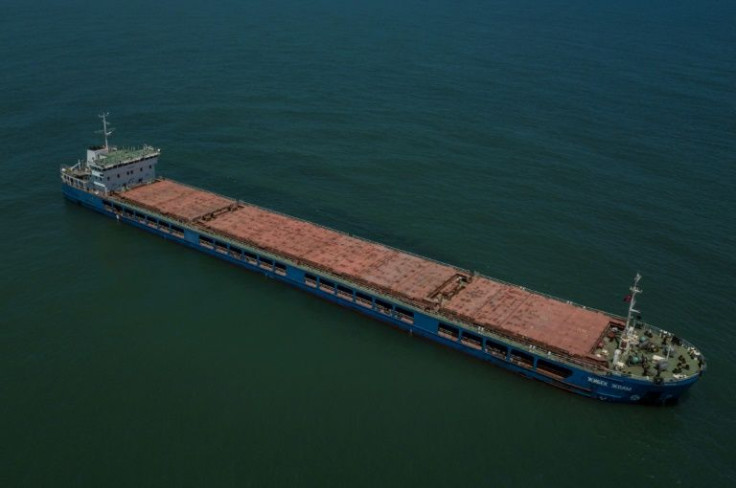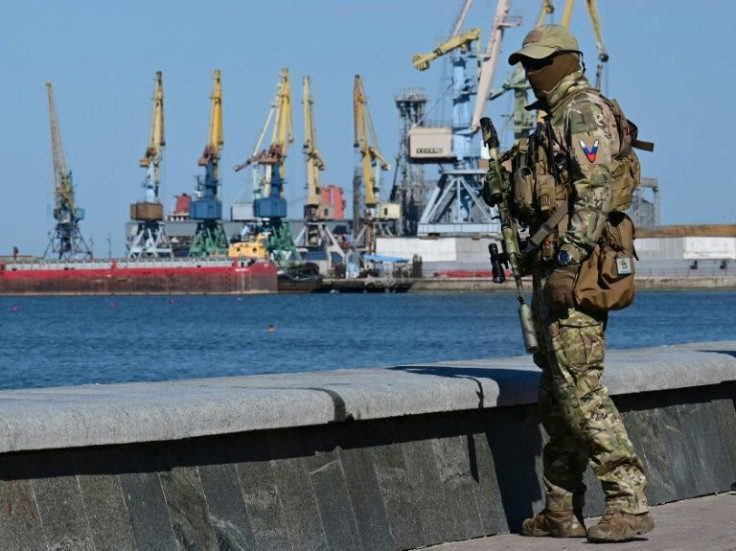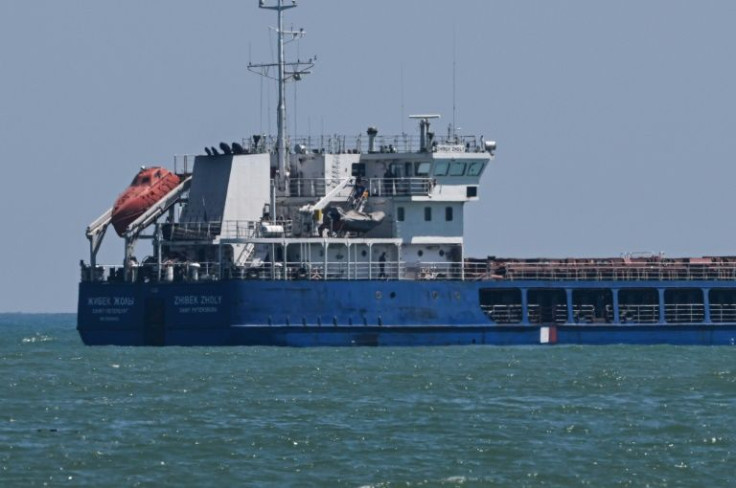Disputed Russian Cargo Ship Still Stranded Off Turkish Coast
A Russian-flagged cargo ship at the centre of a fight over grain between Kyiv and Moscow remained anchored Tuesday off Turkey's Black Sea coast -- a full four days after its unexpected arrival.
Ukraine alleges that the Zhibek Zholy had set off from its Kremlin-occupied port of Berdyansk after picking up confiscated wheat.
Moscow concedes that the 7,000-tonne vessel was sailing under the Russian flag but denies any wrongdoing.
And NATO-member Turkey has said nothing official in public as it tries to maintain open relations with both Moscow and Kyiv while facing Ukrainian pressure to seize the ship.

The saga started when a Kremlin-installed leader in southeastern Ukraine last Thursday announced the launch of the first official grain shipments across the Black Sea since Russia invaded its neighbour in February.
Russia claims to have "nationalised" Ukrainian state assets and to be buying crops from local farmers. Ukraine says its grain is being stolen and used to fund Russia's war effort.
Marine traffic websites then showed the Zhibek Zholy reaching Turkey's Black Sea port of Karasu and stopping about a kilometre (half a mile) off shore.
The ship's arrival was announced by Ukraine's ambassador to Turkey -- one of the most vocal officials in the entire dispute.
He asked Turkey on Twitter to take "corresponding measures" and then told Ukrainian state television the vessel had been impounded by local coastguards.

Turkish officials still offered no comment even though the 140-metre (460-foot) ship was now clearly visible by holidaymakers lounging on Karasu's sandy beach.
Russian Foreign Minister Sergei Lavrov conceded to reporters on Monday that the Zhibek Zholy had not reached its intended destination.

But he also played down Moscow's role or the ship's importance to Russia's efforts to resume marine traffic from parts of Ukraine now under its control.
"We have to look into this situation," said Lavrov.
"The ship really does appear to be Russian, sailing under the Russian flag. I think it belongs to Kazakhstan, while the cargo was being shipped under contract between Estonia and Turkey."
Kazakhstan said the ship was controlled by its national rail company but insisted it should bear no blame.
"There should be no consequences for Kazakhstan," Kazakh industry minister Kairbek Uskenbayev told reporters.

"There were no restrictions on the Russian company that is currently leasing this ship."
A senior Turkish official source told AFP on condition of anonymity that the "problem arose due to a vacuum of authority at the post of departure".
"We are continuing to examine the ship's documents," the Turkish official said.
But beachgoers watching the diplomatic drama unfold before them in Karasu -- a town of 30,000 that swells during the summer tourism season -- say little has happened on the ship since it showed up.
"It never moved," said local pensioner Salise Aktan.
"On Sunday, a boat approached the ship and then left," added fellow beachgoer Gulay Erol.
"I don't know why," the 33-year-old said.
Turkey's reticence underscores the difficulty of its position in the war.
President Recep Tayyip Erdogan has had a tumultuous but close working relationship with Russian counterpart Vladimir Putin.
He has tried to use that access to thrust Turkey into the middle of diplomatic negotiations and talks on resuming grain shipments from Ukrainian ports.
But his Russian relationship is complicated by Turkey's international commitments as a member of the NATO defence bloc.
Turkey's Foreign Minister Mevlut Cavusoglu said last month that Ankara was investigating reports of Russian-seized Ukrainian grain reaching its Black Sea shores.
But he added that Turkey had been unable to find any stolen Ukrainian grain shipments.
Ankara also supplies combat drones to Ukraine that have proved effective in helping slow Russia's advance across the Donbas war zone.
Erdogan told a NATO summit in Madrid last week that his country was trying to pursue "a balanced policy" because of its heavy reliance on Russian energy.
Turkish defence officials met with a Ukrainian delegation on Monday.
No details from those talks were announced.
© Copyright AFP {{Year}}. All rights reserved.





















